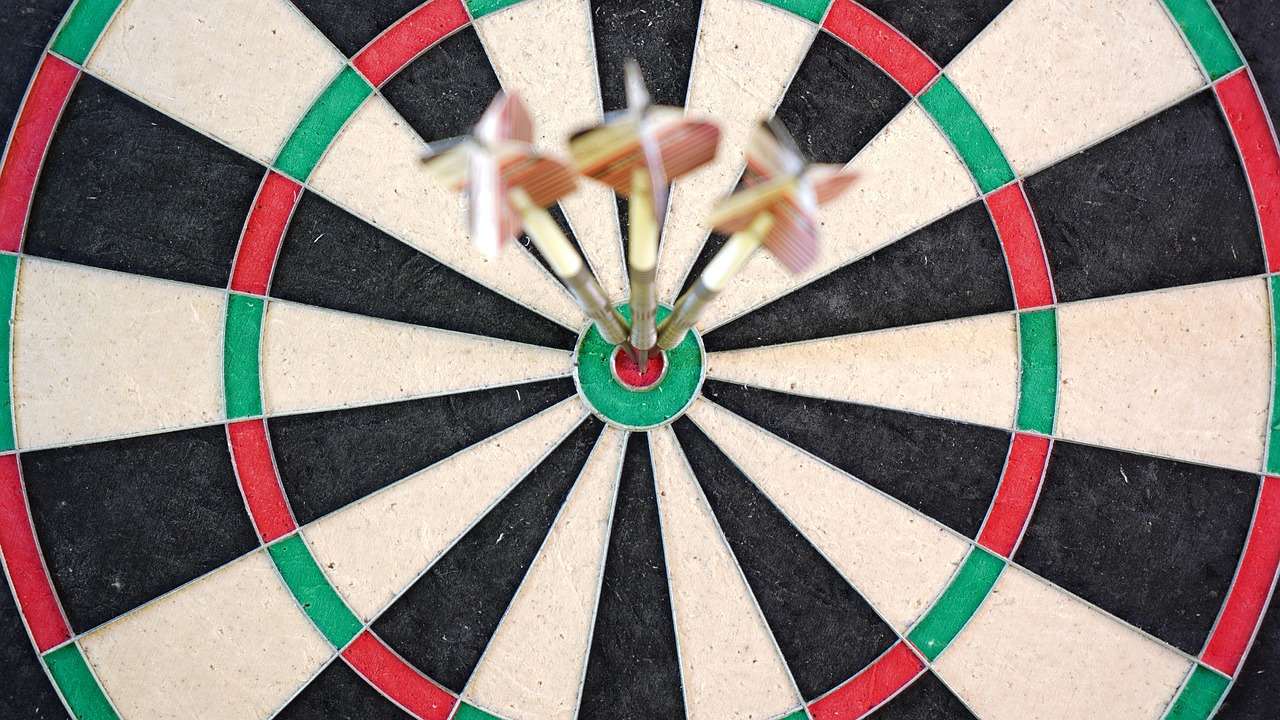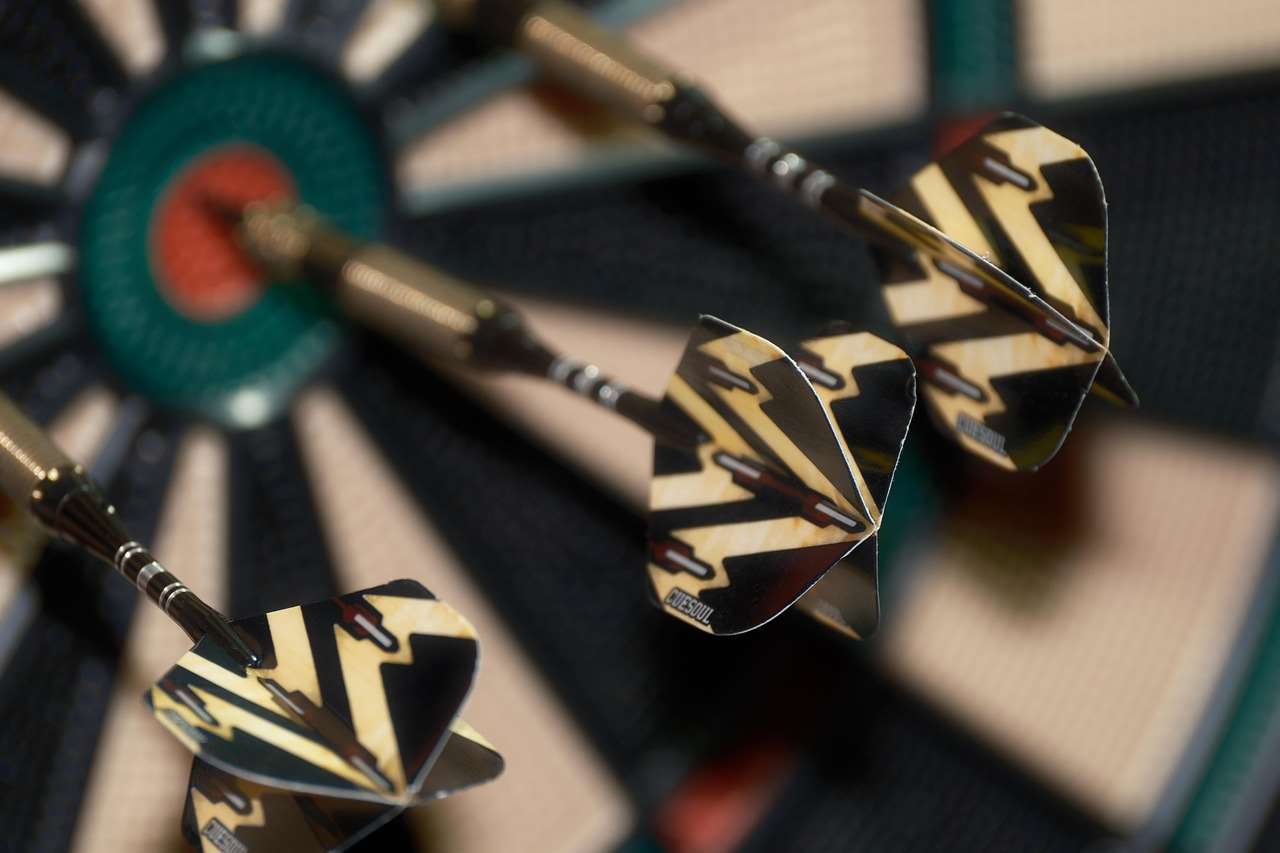Darts nicknames in fan culture are more than just catchy labels; they’re woven into the very fabric of the sport, adding personality, humor, and a sense of identity to the players and their performances. This article explores the rich history and significance of these nicknames, revealing how they’ve shaped the world of darts and continue to resonate with fans today, while also looking at some of the best and most iconic examples.
⚠️ Still Using Pen & Paper (or a Chalkboard)?! ⚠️
Step into the future! The Dart Counter App handles all the scoring, suggests checkouts, and tracks your stats automatically. It's easier than you think!
Try the Smart Dart Counter App FREE!Ready for an upgrade? Click above!
The Significance of Darts Nicknames In Fan Culture
Darts nicknames aren’t just arbitrary labels; they are carefully chosen or organically developed monikers that reflect a player’s personality, playing style, or even a memorable moment in their career. The power of a good nickname lies in its ability to resonate with fans, creating a deeper connection between them and the players they support. These daring and fun nicknames have helped transform the sport from a local pastime into a global sensation. The best nicknames often have a story behind them, enhancing their appeal and memorability. Understanding Darts Nicknames In Fan Culture provides a lens through which to view the history and growth of this beloved sport. Choosing the right darts can also be vital to success, influencing not just performance but also, potentially, the persona you want to project.

Building Player Identity and Brand
A strong darts nickname is essential for building a player’s brand. It distinguishes them from the competition and creates a memorable identity that fans can easily recognize and connect with. Players with distinctive nicknames often attract more sponsorships, media attention, and overall fan engagement. This is because a well-crafted nickname can become synonymous with the player’s image, enhancing their marketability. Successfully Promoting Local Darts, can be directly linked to how well-known and liked players with memorable nicknames are in the local community. The ability to stand out in a crowded field of talented players is significantly boosted by having a catchy and relevant nickname.
Enhancing Fan Engagement and Atmosphere
Darts nicknames in fan culture contribute significantly to the electric atmosphere at darts events. Chants and songs based on player nicknames create a lively and engaging environment that makes attending a live darts match a truly unique experience. The energy of the crowd singing a player’s name adds to the spectacle and excitement, making the players feel more connected to their supporters. Whether it’s the rhythmic chanting of “Barney Army” for Raymond van Barneveld or the chorus of “Mighty Mike” for Michael van Gerwen, these moments highlight the role of nicknames in fostering a strong sense of community among darts fans.
Iconic Darts Nicknames and Their Origins
Over the years, several iconic darts nicknames have become legendary within the sport. Understanding the stories behind these nicknames offers insight into the rich history and colorful personalities that have shaped darts. Here are some examples:
- Phil “The Power” Taylor: Perhaps the most famous nickname in darts, “The Power” reflects Phil Taylor’s unparalleled dominance and skill. His nickname perfectly encapsulates his reputation as the greatest darts player of all time, and it’s a testament to his exceptional talent and numerous world championships.
- Eric “The Crafty Cockney” Bristow: This nickname represents Eric Bristow’s wily and strategic approach to the game, as well as his London roots. Bristow was a master of both the physical and mental aspects of darts, earning him a reputation as one of the most formidable competitors in the sport’s history.
- Raymond “Barney” van Barneveld: Shortened and endearing, “Barney” is a simple but effective nickname that has resonated with fans worldwide. It reflects Van Barneveld’s approachable demeanor and popularity, especially among his devoted “Barney Army.”
- Michael “Mighty Mike” van Gerwen: This nickname conveys Michael van Gerwen’s explosive style and immense power on the oche. “Mighty Mike” reflects his dominance in the modern era and his reputation as a force to be reckoned with.
- Wayne “Hawaii 501” Mardle: Known for wearing Hawaiian shirts, Mardle’s nickname is a lighthearted yet memorable reference to his unique fashion sense and his profession as a darts player. This unique darts player branding made him an unforgettable character in the sport.
These examples demonstrate how effectively darts nicknames in fan culture can capture a player’s essence, making them more relatable and memorable to fans.

The Role of Pundits and Commentators
Pundits and commentators play a crucial role in popularizing darts nicknames. By consistently using these nicknames during broadcasts, they reinforce the player’s identity and help fans remember them. Commentators often delve into the stories behind the nicknames, adding depth and interest to the player’s persona. Their narratives shape public perception and contribute to the overall mythology of the sport. The right commentary can elevate a simple nickname into an iconic symbol, further cementing its place in darts history.
Creating a Memorable Darts Nickname
For aspiring darts players, choosing the right nickname can be a game-changer. Here are some tips for creating a memorable and effective darts nickname:
- Reflect Your Personality: The best nicknames are authentic and reflect your unique personality or playing style. Consider what makes you stand out as a player and try to incorporate that into your nickname.
- Keep it Short and Catchy: A nickname should be easy to remember and chant. Shorter, punchier nicknames tend to be more effective and resonate better with fans.
- Incorporate a Pun or Wordplay: A clever pun or play on words can make your nickname more memorable and humorous. This can help you stand out and create a lasting impression.
- Consider Your Heritage or Background: Drawing inspiration from your cultural heritage, hometown, or personal story can create a meaningful and unique nickname that resonates with fans.
- Test it Out: Before settling on a nickname, try it out with friends and fellow players to see how it sounds and if it resonates with them. Get feedback and make adjustments as needed.
Developing a good nickname is a vital part of Darts Culture And Community Guide as it contributes to the sense of identity and community within the sport.
The Evolution of Darts Nicknames
The world of darts nicknames in fan culture is ever-evolving, reflecting changes in the sport and the personalities of the players. In the past, nicknames were often straightforward and descriptive, focusing on a player’s appearance or hometown. However, modern darts nicknames are often more creative, humorous, and elaborate. This evolution reflects a broader trend towards greater showmanship and entertainment value in the sport. The increasing importance of branding and marketing has also influenced the development of darts nicknames, with players and their teams seeking to create memorable and marketable identities.

Impact of Social Media
Social media has had a profound impact on darts nicknames. Players now have direct access to their fans, allowing them to solicit suggestions for nicknames and build excitement around the process. Social media platforms provide a space for fans to discuss and debate nicknames, further amplifying their reach and impact. The ability to share photos, videos, and stories related to nicknames has also contributed to their popularity and memorability. Players can now cultivate their brand and interact directly with their fanbase, resulting in greater loyalty and engagement. Consider this when Recruiting Members Darts League Club; utilize social media to introduce players’ nicknames and backstories.
Legal Considerations for Darts Nicknames
In some cases, players may seek to trademark their darts nicknames to protect their brand and prevent others from profiting from their identity. This is especially common for players who have achieved significant success and have built a valuable brand around their nickname. Trademarking a nickname can provide legal recourse against unauthorized use, ensuring that the player retains control over their image and reputation. However, the process of trademarking a nickname can be complex and expensive, requiring careful consideration of legal and business factors.
The Future of Darts Nicknames In Fan Culture
The future of darts nicknames in fan culture looks bright, with continued innovation and creativity expected. As the sport continues to grow in popularity, the importance of having a memorable and marketable nickname will only increase. Players will likely continue to experiment with new and innovative ways to create nicknames that resonate with fans and enhance their brand. The use of technology and social media will also play a key role in the evolution of darts nicknames, with players leveraging these tools to engage with their fans and build their online presence. The vibrant tradition of darts nicknames in fan culture will endure, contributing to the sport’s captivating blend of skill, showmanship, and community.

The Lighter Side: Funny and Unusual Darts Nicknames
Not all darts nicknames are about power or prestige. Some are downright hilarious and unexpected! These funny nicknames often originate from inside jokes, quirky habits, or memorable moments in a player’s career. Examples might include references to a player’s physical appearance, a particular mishap on stage, or simply a funny wordplay that stuck. While these nicknames might not always be flattering, they add a dose of levity to the sport and demonstrate that darts is not without its sense of humor.
Ultimately, Darts Nicknames In Fan Culture are not just labels, but an integral part of the sport. Understanding the history, origins, and impact of these nicknames offers insight into the world of darts and the culture that surrounds it. From building player brands to enhancing fan engagement, these names play a vital role in shaping the sport’s identity. So next time you’re watching a darts match, take a moment to appreciate the story behind the nickname and the player who carries it.

Organizing Events and Darts Nicknames
When Organizing Local Darts League events, leverage the power of darts nicknames to promote the event and attract participants. Include player nicknames in promotional materials, such as posters, flyers, and social media posts. Consider hosting contests where fans can vote for their favorite nicknames or even suggest new ones. This can help generate buzz and excitement around the event, increasing attendance and engagement.
Conclusion
Darts nicknames in fan culture are a fascinating and integral part of the sport, adding personality, humor, and a deeper connection between players and fans. From iconic monikers like “The Power” to more lighthearted ones, these nicknames contribute significantly to the vibrant atmosphere and unique identity of darts. By understanding the history, significance, and creation of these nicknames, fans can gain a greater appreciation for the rich tapestry of the sport. To truly become part of the darts community, consider attending a local match and experiencing the electric atmosphere fueled by these catchy names firsthand! Look into How To Start A Darts League to create more avenues for this vibrant culture to spread and flourish.
Hi, I’m Dieter, and I created Dartcounter (Dartcounterapp.com). My motivation wasn’t being a darts expert – quite the opposite! When I first started playing, I loved the game but found keeping accurate scores and tracking stats difficult and distracting.
I figured I couldn’t be the only one struggling with this. So, I decided to build a solution: an easy-to-use application that everyone, no matter their experience level, could use to manage scoring effortlessly.
My goal for Dartcounter was simple: let the app handle the numbers – the scoring, the averages, the stats, even checkout suggestions – so players could focus purely on their throw and enjoying the game. It began as a way to solve my own beginner’s problem, and I’m thrilled it has grown into a helpful tool for the wider darts community.